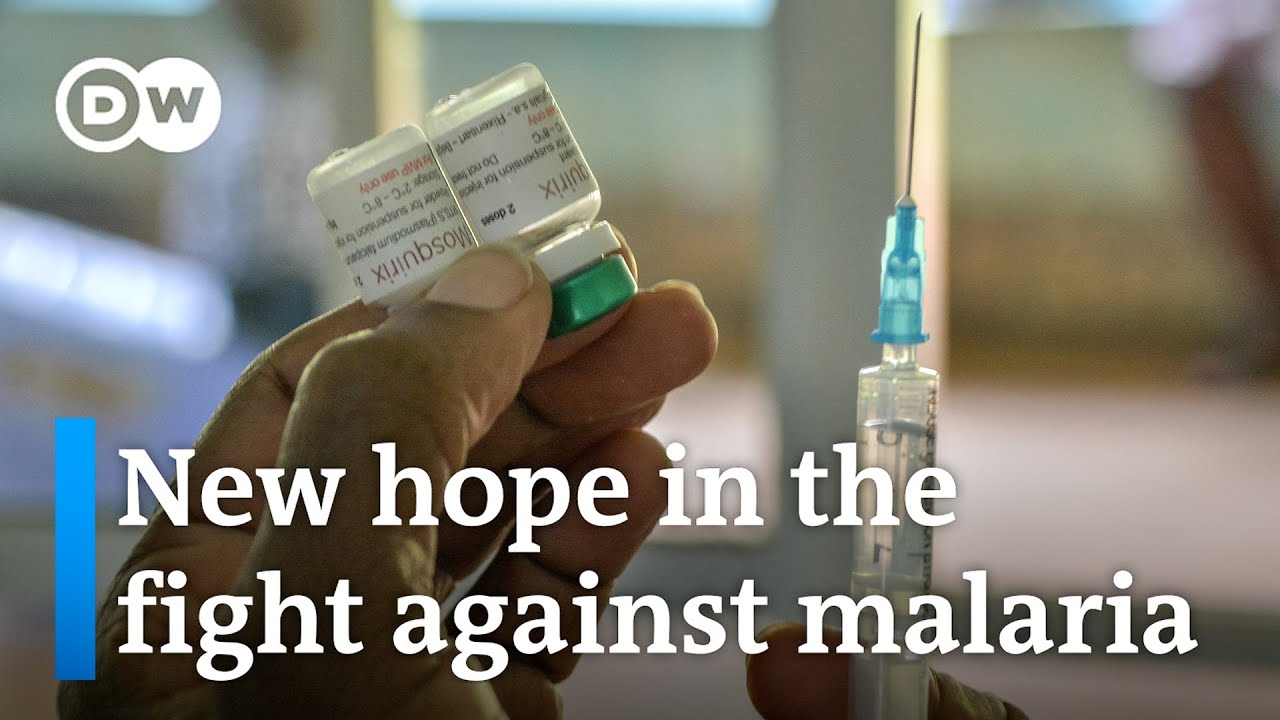Can Vaccines Rid Africa Of Malaria? | Dw News
Unleash Your Creative Genius with MuseMind: Your AI-Powered Content Creation Copilot. Try now! 🚀
Introduction
Malaria, a deadly disease that claims the lives of over 600,000 people each year, has long been a global health crisis. The majority of these deaths are children, a heartbreaking reality that demands urgent action. But amidst the darkness, a glimmer of hope emerges. On World Malaria Day, the World Health Organization (WHO) announced the development of a new vaccine that could potentially eradicate the disease once and for all. This groundbreaking vaccine, known as the r21 vaccine, is currently in its final stages of trials, with Ghana and Nigeria already granting it provisional approval. In this essay, we will explore the significance of this vaccine and its potential to save millions of lives.
The Power of Prevention: The r21 Vaccine
For mothers like Kate in Ghana, the r21 vaccine is a ray of hope, offering protection for their children against the devastating effects of malaria. Kate, who has personally experienced the effects of malaria, understands the importance of early vaccination. She believes that starting the vaccine early can prevent children from contracting the disease and its potentially fatal consequences. The r21 vaccine, approved by the WHO, is now available for children in Ghana, following a successful pilot project in 2019. This vaccine, along with the existing RTS vaccine, has the potential to save countless lives.
Ghana's Leading Role in the Fight Against Malaria
Ghana has taken a leading role in the fight against malaria, not only by implementing the r21 vaccine but also by approving the new Oxford vaccine, r21. As the first country in Africa to do so, Ghana sets an example for others to follow. However, it is important to note that while these vaccines offer significant progress, addressing the root causes of malaria is equally crucial. Stagnant water, where malaria-carrying mosquitoes breed, must be effectively tackled. Ghana recognizes the need for a holistic approach, combining vaccines, indoor residual spraying, bed nets, and other tools to combat the disease.
The Road to Zero Malaria Cases
The WHO has set an ambitious goal of zero malaria cases worldwide. Achieving this goal will require the widespread use of new vaccines. The experience in Ghana has already demonstrated the positive impact these vaccines can have in protecting the lives of children. However, it is essential to harmonize various tools and strategies to combat malaria effectively. Indoor residual spraying and bed nets, in addition to vaccines, play a critical role in eradicating mosquitoes and preventing the transmission of the disease. By combining these methods, we can work towards a future free from the burden of malaria.
A Conversation with Bart Knolls: The Fight Against Malaria
To gain further insights into the fight against malaria, we spoke with Bart Knolls, a renowned vector biologist and author, who has dedicated his research to mosquitoes and the diseases they transmit. Based in Bali, Indonesia, Bart shares his firsthand experiences of working in East and Southern Africa, where malaria has had a devastating impact on communities. He emphasizes that malaria not only affects individuals but also hinders the development of entire countries. Bart believes that the new vaccines, particularly the r21 vaccine, have the potential to be truly transformative, bringing about significant progress in reducing malaria-related deaths.
A Brighter Future: The Impact of Vaccines
Bart highlights the importance of the new vaccines in reducing the number of malaria cases and deaths. For the past seven years, progress in combating malaria has been stagnant. However, with the introduction of these vaccines, there is renewed hope for change. The r21 vaccine, in particular, offers enhanced protection for children, which can lead to a decrease in child mortality rates. This, in turn, will have a positive ripple effect on society, as families can have fewer children, provide better education, and ultimately improve their economic status. Bart's optimism stems from the potential of vaccines to transform societies and pave the way for a healthier and more prosperous future.
The Need for an Integrated Approach
While vaccines are a crucial component in the fight against malaria, Bart emphasizes the need for an integrated package of tools and strategies. Malaria outbreaks are influenced by various factors, including poor sanitary conditions and stagnant water. To effectively combat the disease, a combination of approaches is necessary. This includes the use of mosquito nets, indoor residual spraying, proper diagnostics, and effective drugs. By utilizing a full toolbox of methods, different parts of the continent can work towards eliminating malaria. While challenging, Bart believes that with persistence, progress can be made.
Overcoming Vaccine Hesitancy
One of the potential obstacles in the fight against malaria is vaccine hesitancy. Bart acknowledges that attitudes towards vaccines can impact their effectiveness. However, research has shown that there is a good receptivity towards new vaccines for malaria. The devastating impact of the disease has created a strong desire for solutions among communities. By engaging with communities, raising awareness, and highlighting the benefits of vaccines, acceptance can be increased. As people witness a decline in child mortality rates, the acceptance and adoption of vaccines are likely to grow.
The Path to Malaria Eradication

Related Recaps
- David Ornelas x Gabito Ballesteros - Saquen Plan [Official Video]
- Bored out of your mind at work? Your brain is trying to tell you something. | Dan Cable | Big Think
- Arsenal 2-0 Brighton reaction: Has Arteta worked out how to get the best of Kai Havertz? | ESPN FC
- PGR pede prisão de Sergio Moro por fala sobre Gilmar Mendes
- Aruba Travel Diary (Cliff Jumping, UTV Tour, Hiking + More)